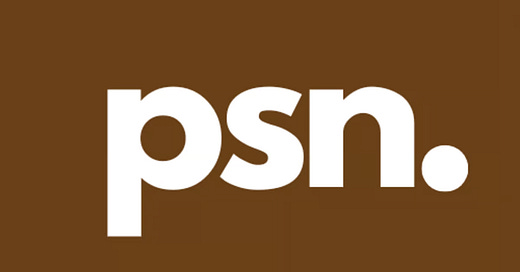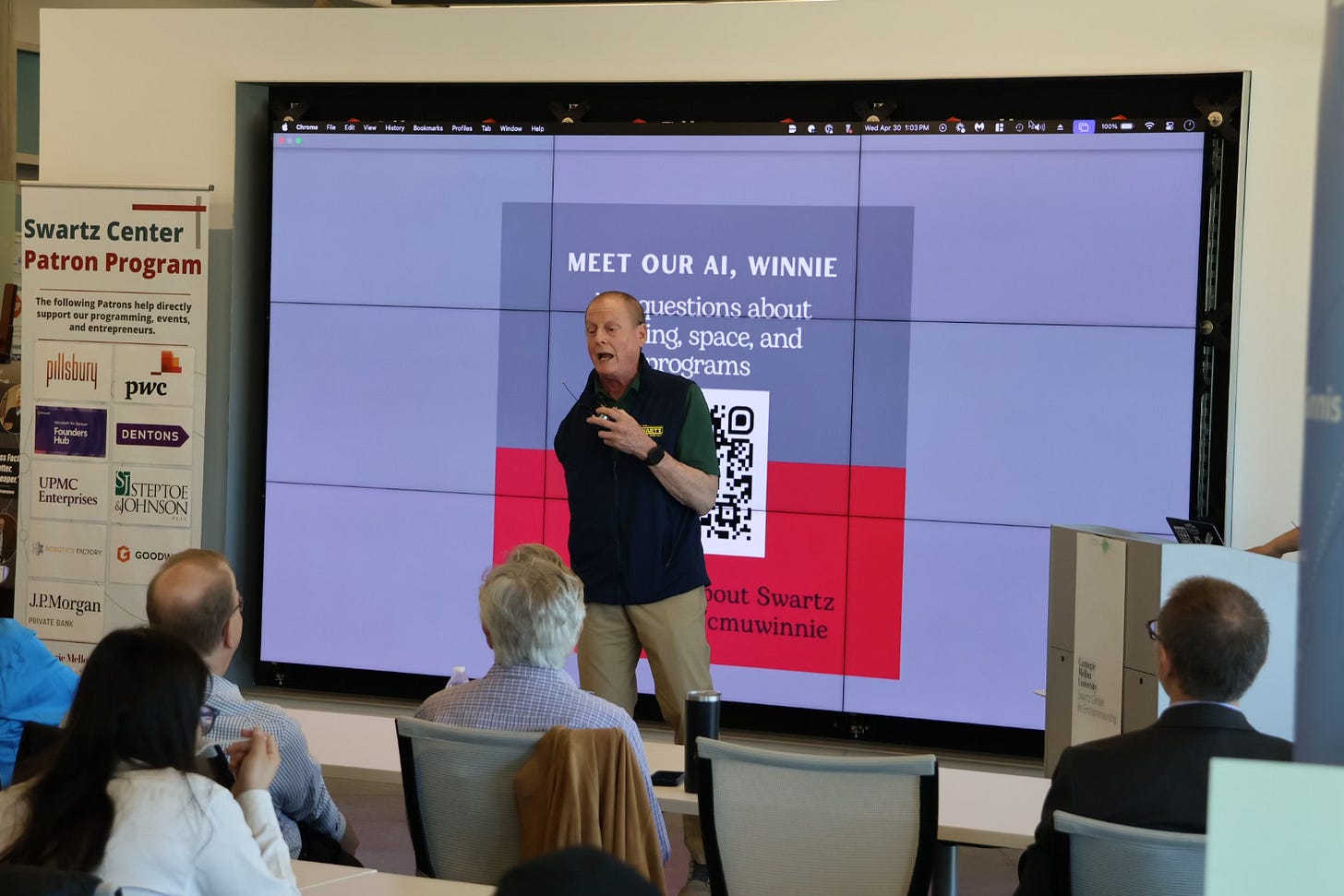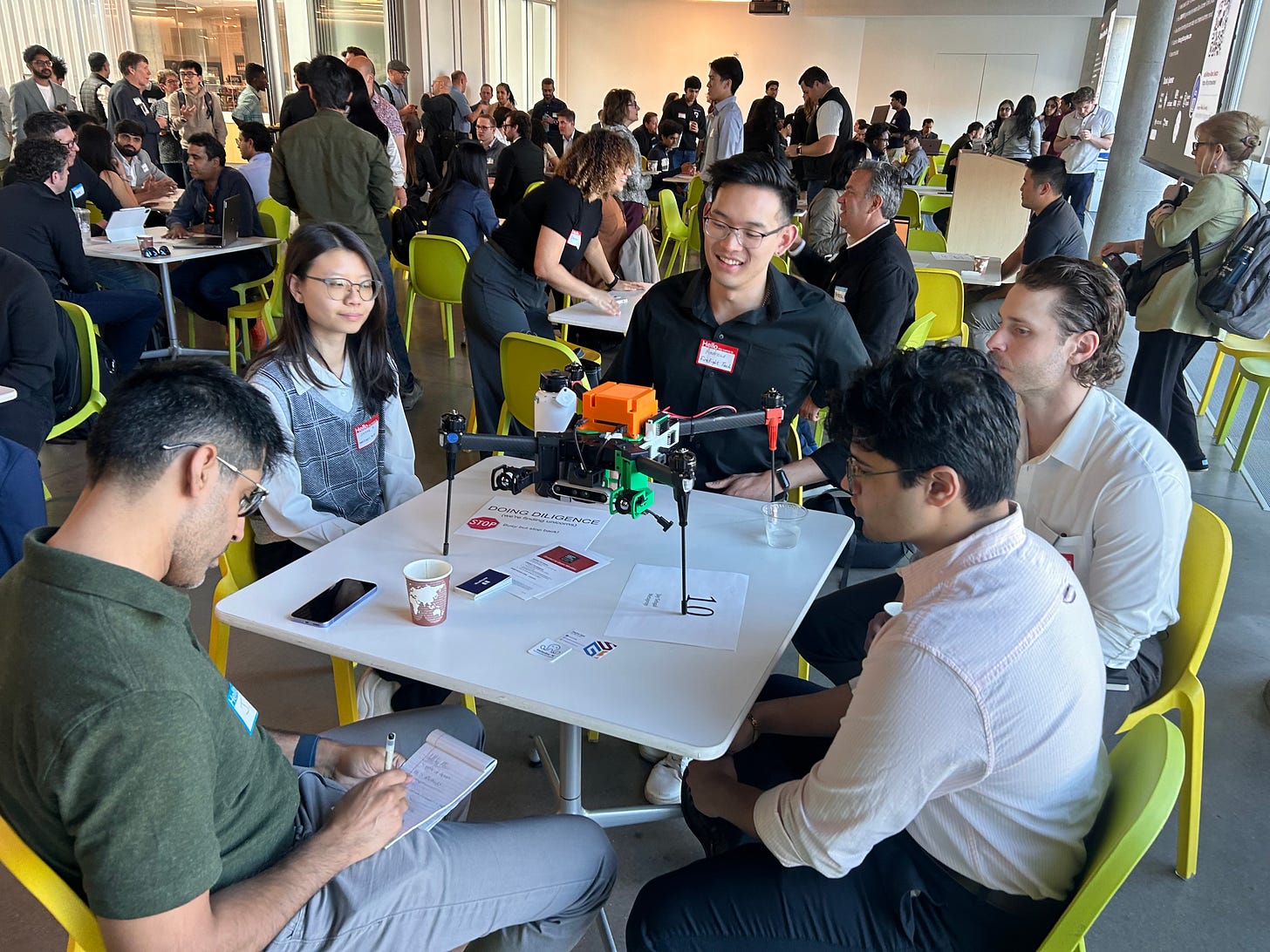Were you one of the 500+ people at Carnegie Mellon’s AI Venture Studio Demo Day? If so, thank Dave Mawhinney.
- Photo: Aleksandar Petkov, CMU
AI //VS started in 2024 with one mission: help students BUILD companies—not just learn how to build them. This year, ~100 Carnegie Mellon student builders across 36 programs came together to celebrate doing just that.
But before we get into the details of the day, it’s important to recognize the very first believer: Dave Mawhinney. About 10 years ago, CMU didn’t have a top 5 entrepreneurship ranking or rank #4 nationally in producing unicorns (aka $1Bil+ startups). And to the best of our memory, this may be the only event on campus (ever?) that had both a student demo day and a faculty demo day—with more than 40 investors present. Over 250 investor meetings happened across student and faculty startups that day. (Check out the companies here.)
Thank you, Dave, for doing the thing that the community needs: supporting the creation of companies—not just teaching people how to go work for someone else’s.
- Photo: PSN
Now, a quick walk through just some of the teams that pitched that day:
aegis: Agents that automate the entire health insurance denial appeals workflow—from denial intake to appeal generation—using clinical documentation, insurance guidelines, and medical coding insights. (Backed by Y Combinator before the end of the semester)
Solstis.ai: AI agents that automate internal info retrieval across tools like Slack, Confluence, Jira, and GitHub.
Agilow: A voice-first project management and Agile coaching platform that turns stand-ups, sprint planning, and retros into instant, structured documentation—no typing, no delay. Human coaches + AI Scrum Masters = velocity, alignment, and culture.
Basilisk Robotics: Autonomous underwater robots that clean boat hulls to reduce emissions and maintenance costs.
HelloSec.ai: End-to-end AI security platform for startups, eliminating friction in compliance and threat detection.
Basira: Replicating nutritionist logic, guided by real-time body signals.
MenoVa.ai: AI menopause care agents with tracking, plans, and community support.
Gumbo: No-code platform to extract real-time public data for startups and campaigns.
Skintuition: Personalized skincare product and routine recommender powered by AI.
OctaPulse: Autonomous aquaculture robots for fish sorting, health tracking, and inspection.
CuddleCode: AI-powered job-specific coding assessments with chat visibility into candidate reasoning.
FireFight.tech: Real-time location and insight tools for modern firefighting and multi-story incident tracking.
Peekly: AI marketing analyst that helps companies instantly discover what channels, offers, and buyers work.
Athena: Personalized learning roadmap agents for adult upskilling and career transitions.
HEXBID: AI bidding platform for construction estimators that reduces time, cost, and manual effort.
Carnegie Mellon has the AI pedigree—but pedigree doesn’t build companies. People do.
AI//VS worked because it wasn’t run like a class—it was run like a studio. That’s the difference. As Param Vir Singh, Associate Dean of Research at CMU, put it:
“this course brought together students from across CMU to build and pitch 24 startups at the intersection of AI and entrepreneurship. The level of ambition and execution on display was simply inspiring. “
When operators like Dave Mawhinney are at the helm, the results speak for themselves. Multiple teams got funded before the semester ended—momentum is building.
If CMU wants to lead the AI startup frontier, it needs more than research labs and rankings. It needs founders who’ve built, sold, failed, and scaled high-growth, high-tech products—embedded in the ecosystem and coaching in real time.
Congrats to the teams. And congrats to the leaders who created the space for them to build.
If you haven’t done so today, please help us thank Dave Mawhinney and the broader CMU ecosystem who made Demo Day possible.





